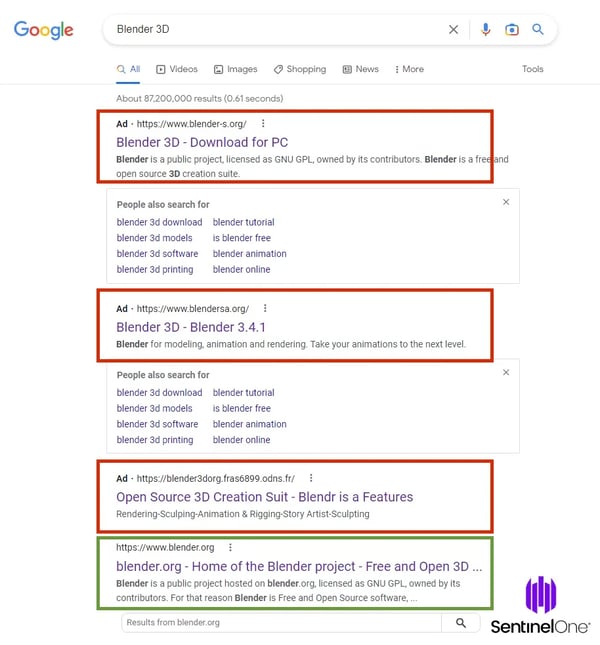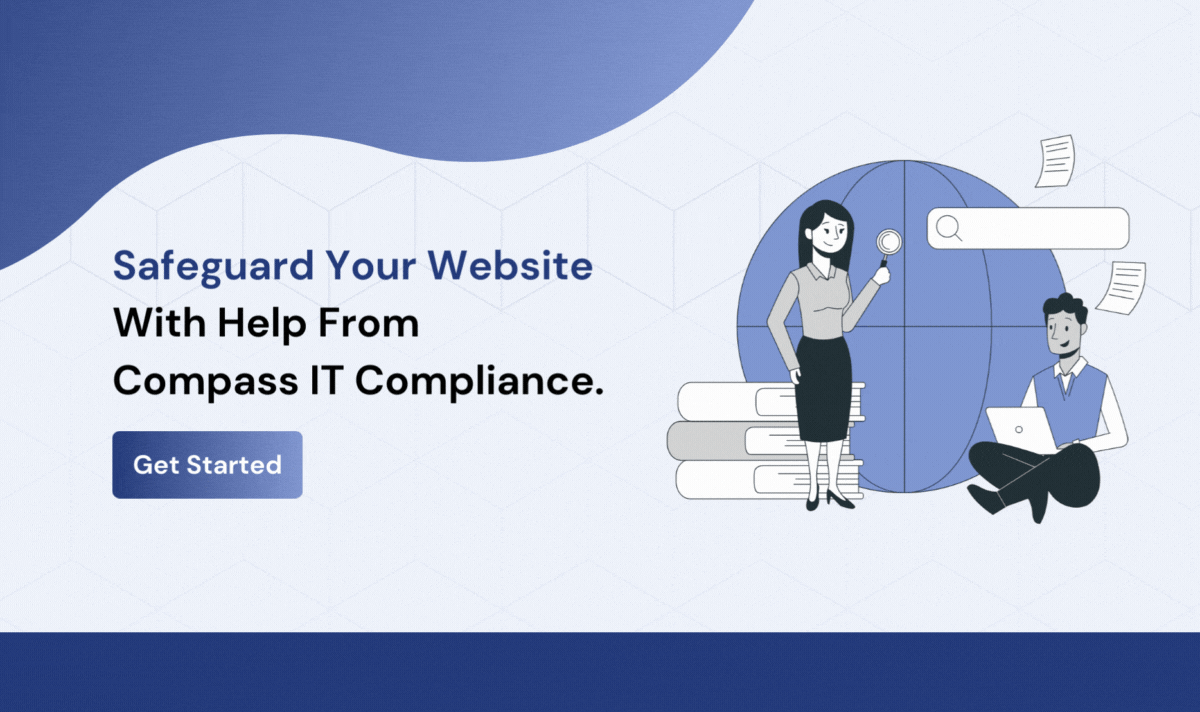Safeguard Your Website From SEO Poisoning
In today's digital landscape, search engine optimization (SEO) plays a crucial role in enhancing a website's visibility and attracting organic traffic. However, with every advancement in technology, new risks emerge. One such risk is SEO poisoning, a deceptive technique employed by malicious actors to manipulate search engine rankings and direct unsuspecting users to harmful websites. Last week, the U.S. Department of Health and Human Services’ (HHS) Health Sector Cybersecurity Coordination Center (HC3) released an analyst note stating that they have observed this attack method being used recently and frequently against the U.S. Healthcare and Public Health (HPH) sector.
In this blog post, we will delve into the concept of SEO poisoning, explore examples of its occurrence, and highlight essential steps to protect your website from this insidious threat.
What is SEO Poisoning?
SEO poisoning, also known as search poisoning or black hat SEO, involves the deliberate manipulation of search engine results pages (SERPs) by exploiting vulnerabilities in search algorithms. Attackers employ a variety of methods to achieve this, such as injecting malicious code, creating fake websites, or incorporating black hat SEO techniques. The ultimate goal is to trick search engines into ranking their malicious content higher, leading unsuspecting users to click on harmful links or visit compromised websites. One common method of SEO poisoning is typosquatting, a prevalent tactic that aims at individuals who unknowingly type a website address with a slight typo or click on a link featuring a misspelled URL. Malicious actors leverage these innocent mistakes by registering domain names that bear striking resemblance to legitimate ones.
To counteract such tactics and ensure the integrity of your online presence, employing white label services can be highly effective. These services allow businesses to outsource their SEO needs to specialized providers who use legitimate strategies to boost rankings and protect against black hat techniques. By leveraging expert white label SEO services, companies can maintain a strong, secure online presence while focusing on their core competencies.
Imagine a scenario where a user performs a keyword search in their web browser. Often, without thoroughly inspecting the URL, they might hastily click on the first result. However, lurking within these results are misspelled variations like "Goggle" instead of "Google" or deceptive characters like "1" masquerading as "l." Unfortunately, this unsuspecting user would then find themselves redirected to a fraudulent website, coerced into downloading files infected with malware.

An example of SEO poisoning.
Source: SentinelOne
Examples of SEO Poisoning
Pharmaceutical Poisoning: One of the most common forms of SEO poisoning involves exploiting searches related to pharmaceutical products. Attackers create spammy websites that appear legitimate and contain enticing offers for prescription drugs. By utilizing black hat SEO techniques like keyword stuffing and hidden text, they manage to outrank genuine pharmaceutical websites. When users click on these manipulated search results, they are often directed to illicit online pharmacies or dangerous websites.
Celebrity News: Attackers capitalize on public interest in celebrities and exploit breaking news stories to spread malware. By creating bogus websites with misleading information and using clickbait headlines, they manipulate search engine rankings to position their malicious pages higher. Unsuspecting users searching for the latest updates on their favorite celebrities may end up on compromised websites that infect their devices with malware or attempt to steal personal information.
Seasonal Scams: Another common SEO poisoning trend attackers utilize is spinning up malicious websites to rank for search traffic related to holidays and seasonal occurrences. This might include a fraudulent website claiming to offer discount Halloween costumes or an extensive library of the best Christmas recipes. These sites will be created in the weeks and months leading up to these holidays and may be devoid of useful content or might leverage content stolen from legitimate sources. The emergence of artificial intelligence chatbot can also help in rewording stolen content to not appear to search engines as duplicate information.
Steps to Avoid SEO Poisoning
Educate Your Users: Empower your employees by educating them about SEO poisoning and the potential risks associated with clicking on suspicious search results. Encourage them to be cautious when clicking on links and to verify the credibility of websites before providing personal information or making online purchases.
Monitor Search Engine Results: Regularly monitor your website's search engine rankings and investigate any sudden fluctuations. If you notice unexpected drops or spikes in rankings, it could indicate a potential SEO poisoning attack. Promptly investigate and address these anomalies to prevent further damage to your website's reputation and ranking. Utilizing a SERP API can streamline the process of tracking these changes, providing real-time data on your website's performance in search engine results. The use of typosquatting detection tools can also assist in remaining informed of any variations of your domain that are currently in use by malicious actors. Another effective approach to identify malicious URLs involves utilizing lists of indicators of compromise (IOC). These comprehensive lists offer insights into suspicious website activities, abnormal search engine rankings, phishing attempts, unexpected fluctuations in website traffic, and suspicious content. Employing these lists as watchlists or blocklists enables proactive detection and prevention of potential threats.
Purchase Similar Domains: Consider buying more than one domain for your business as early as possible to mitigate the risk of a malicious actor purchasing a similar domain and using it to deliver malware to users who are looking to visit your site. This would include common misspellings and alternate spellings of your domain.
Be Vigilant of External Links: Exercise caution when linking to external websites. Ensure that the sites you link to are reputable, as linking to malicious or compromised websites can harm your website's SEO and expose your visitors to potential threats.
Practice Ethical SEO: Avoid engaging in black hat SEO techniques, such as keyword stuffing, hidden text, or creating low-quality content solely for search engine manipulation. Instead, focus on providing valuable, relevant, and user-friendly content that naturally attracts organic traffic. Incorporating secondary keywords appropriately can enhance your content's relevance and search visibility. Ethical SEO practices not only safeguard your website from potential penalties but also foster long-term sustainability and user trust.
Implement Secure Socket Layer (SSL) Certificates: Ensure your website has an SSL certificate installed. SSL certificates encrypt data transmitted between your website and users, providing an additional layer of security. This not only protects user information but also improves your website's credibility and search engine rankings.
Stay Updated and Seek Professional Help: Stay informed about the latest SEO trends, search engine algorithm updates, and emerging security threats. Regularly consult reputable sources, participate in relevant industry forums, and consider seeking professional assistance from SEO experts or digital growth marketing agencies with expertise in security.
Conclusion
SEO poisoning poses a significant threat to website owners and users alike. By understanding the concept of SEO poisoning, recognizing its occurrence in various forms, and implementing proactive security measures, you can protect your website from falling victim to this malicious tactic. Regular updates, strong authentication, monitoring search engine results, cautious linking, and the implementation of security measures like WAFs and SSL certificates are essential steps to defend against SEO poisoning. By adopting ethical SEO practices and staying informed, you can ensure the long-term success and safety of your website in the digital landscape.
Remember, vigilance and continuous improvement are key to staying one step ahead of cybercriminals and safeguarding your website's integrity. Stay informed, prioritize security, and protect your website and visitors from the dangers of SEO poisoning.
Contact Us
Share this
You May Also Like
These Related Stories

Phishing vs. Pharming: What's the Difference?

Domain Name Server (DNS) Hijacking Defined

.webp?width=2169&height=526&name=Compass%20white%20blue%20transparent%202%20website%20(1).webp)
-1.webp?width=2169&height=620&name=Compass%20regular%20transparent%20website%20smaller%20(1)-1.webp)

No Comments Yet
Let us know what you think